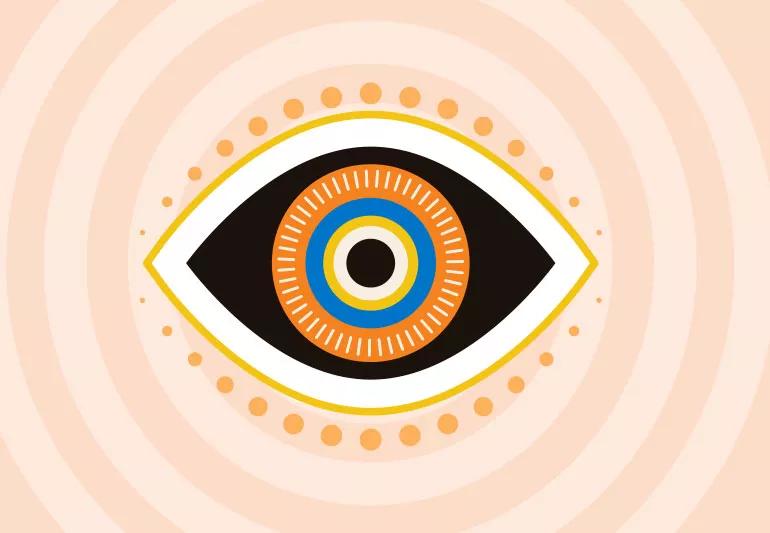Tips for protecting and preserving your eyesight

It’s easy to take your eyesight for granted – until something happens to threaten it. This throws vision’s importance into sharp relief.
Advertisement
Cleveland Clinic is a non-profit academic medical center. Advertising on our site helps support our mission. We do not endorse non-Cleveland Clinic products or services. Policy
Here, ophthalmologist Richard Gans, MD, explains the five most common conditions affecting your vision and shares tips for preserving your eyesight.
The problem: Light rays from objects in view must pass through your lens to reach your retina’s light-sensing cells. When a cataract clouds the lens, your vision fogs and lights get a halo.
Tips for prevention: Protect your eyes with lenses that block both UVA and UVB light, and avoid smoking. It’s important to control your blood pressure, watch your weight and manage diabetes as well.
The problem: Your retina transforms light into signals your brain can process. Diabetes can swell the retina and make blood vessels leak or grow, causing blurring, flashes, floaters, pain and pressure.
Tips for prevention: Get yearly dilated eye exams to detect diabetes-related eye problems early, which can prevent or slow vision loss. Controlling your blood glucose and blood pressure is also key.
The problem: You rely on light-sensing cells in the macula, the center of your retina, for what is called central vision. In age-related macular degeneration (AMD), tissue breakdown or blood vessel growth in the macula makes it hard to see faces, read, drive and more.
Advertisement
Tips for prevention: Avoid smoking, which doubles your risk of macular degeneration as you age. Get regular exercise, control your blood pressure and cholesterol. Also, eat lots of leafy greens and fish.
The problem: The right amount of fluid must fill the space within your eye. Pressure from too much fluid damages the optic nerve, which then steals your peripheral and then your central vision.
Tip for prevention: Work with your eye doctor to keep your eye pressure well-controlled to avoid losing your vision.
The problem: Your eyeball, cornea and lens must be shaped just right for light rays to bend (refract) and land on your retina to make their way to the brain. If this process doesn’t happen, vision blurs.
In refractive errors, light rays do not bend and land where they should in the eye. Refractive errors include:
Tip for correction: Eye exams are recommended annually before age 18 and after age 65, and every two years in between (unless you have a medical or eye problem that requires frequent attention).
Advertisement
Learn more about our editorial process.
Advertisement

These trendy glasses might brighten some shades and help you see the difference between colors or brightness of hues, but they won’t cure your color vision deficiency

Some eye conditions can have more noticeable effects at night

Combat blurry night vision and see more clearly with these expert tips

Too much blue light, especially from digital sources, may lead to eye strain and computer vision syndrome

Having a first-degree biological relative with this eye condition raises your risk, but other factors are at play, too

When worn incorrectly, contacts can cause or worsen dry eye symptoms

Having a family history of glaucoma is one of the biggest risk factors for developing the condition yourself

Start having sex about 72 hours before ovulation, then at least every other day during your fertile window

Attachment theory suggests that your earliest relationships shape connections throughout your life

It isn’t a recognized mental health disorder, but research shows that problematic social media use can negatively affect your mental health, self-esteem and sleep